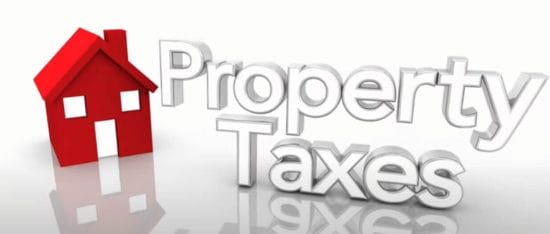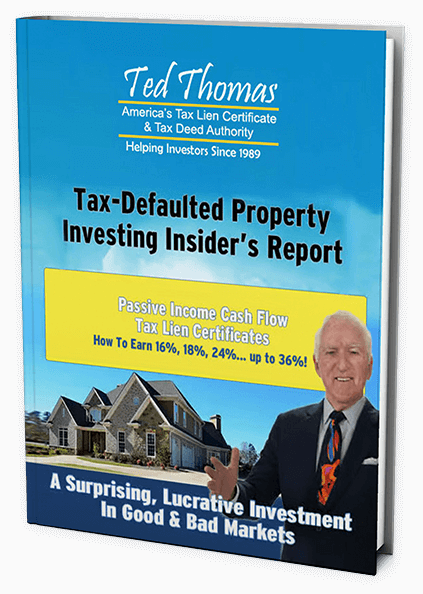Buying a home by paying back taxes can be a lucrative investment. Imagine owning a property by simply covering its unpaid property taxes. It may sound too good to be true, but it’s entirely within the realm of possibility and legality.
Across the United States, property taxes are mandatory, and when they go unpaid, counties have the authority to take action. As a homeowner, this might seem daunting, but as an investor, it opens a door to potential opportunities.
Insights on Tax Delinquent Property
Regulations Regarding Unpaid Property Taxes
When property taxes are left unpaid, state law prescribes a clear response. It’s the property owner’s duty to fulfill these tax obligations.
Should the property owner default, county officials act swiftly to recover owed taxes essential for local public services. The County Treasurer initiates recovery by placing a tax lien on the property, which serves as a legal claim signalling impending governmental action if dues are not settled.
Consequences for Late Property Tax Payments
Failing to pay property taxes leads to significant repercussions, which unfold rapidly due to the county’s reliance on this revenue. Initially, the property is subjected to a tax lien, subsequently escalated to a levy— an alert that property confiscation is imminent. This culminates in a public auction where the county sells the property, indifferent to the final sale price, as long as it covers the unpaid property taxes.

These properties can often be acquired at auction for minimal amounts, sometimes as little as a few hundred dollars, sans mortgage or deed of trust. However, while certain liens like a mortgage can be dissolved through the process, others, like IRS liens or municipal liens, may persist, requiring you to do careful research before buying a home by paying back taxes. Therefore, when eyeing potential properties, scrutinize county records and understand the local market.
Know that all properties are sold as-is without any guarantee of a clear title or defect-free status, making due diligence indispensable. Avoid mistakes like buying sight unseen or choosing properties in declining areas since real estate can be rehabilitated, but neighborhoods can’t be adjusted.
Remember, while attending these auctions, preparation is key. Each county sets its auction rules, demanding that you adapt accordingly.
Tax Auction Advantages
Opening Bids Compared to Asset Worth
When tax-delinquent properties are auctioned, the starting bids often equate to the outstanding taxes owed. This presents an opportunity for you to acquire properties at substantial discounts. With bids opening at the tax debt amount, investments can range from modest sums to larger figures, depending on the property and location.
Buying a Home by Paying Back Taxes Below the Market Rate
A significant benefit of tax deed auctions is the chance to purchase real estate for below its market value. In certain instances, properties have been won for as little as a few hundred dollars—far less than their estimated worth. Acquiring properties in this manner means that there’s potential for high returns on the investment, as you’re effectively buying assets at large discounts, occasionally pennies on the dollar, with no mortgage or deeds of trust attached.
- Example Properties and Prices:
- Los Angeles County:
Paid Price Market Value Percentage of Dollar 9% 100% 9 cents on the dollar - New York:
Description Acreage Mortgage Status Large colonial homes 3-4 acres Mortgage-free
- Los Angeles County:
Remember, while such opportunities are advantageous, not all properties will be perfect finds. Some may require repairs and renovations. Yet, the potential for buying a home by paying back taxes exists, which would be considerably below its true value, making tax deed auctions a unique investment avenue.
Exploring Tax Deed Investment Opportunities
Valuing Properties and Determining Sale Potential
Before you consider buying a home by paying back taxes at an auction, it’s essential to evaluate the financial worth of a property against its potential for a profitable sale. Start by examining assessed values to ensure a promising return on investment. Pay attention to the starting auction prices, typically equivalent to unpaid property taxes, which can sometimes be as low as a few hundred dollars.
There’s a variety of real estate available, from residential properties in populous areas like Los Angeles, fetching prices at a fraction of their value, to expansive homes in New York. Remember, these assets come as-is without a mortgage, offering significant savings, but also potentially requiring refurbishment.
Understanding Persistent Liens Beyond the Tax Deed
Although tax deed sales can eradicate mortgages or deeds of trust, other liens may endure. For instance, IRS or municipal liens are not dismissed through these sales, remaining attached to the property.
It’s prudent to engage a legal or financial expert who can clarify which obligations will persist post-auction. This step prevents unexpected financial burdens after your acquisition.
Checking Conditions of the Property and Its Locale
The phrase “Caveat Emptor,” or “buyer beware,” is pertinent when purchasing properties at tax deed sales. The county declares no warranty for the condition or the clarity of the title, implying possible defects.
Physical examination of the property and its surroundings is imperative. Evaluate the real estate alongside neighboring properties; a desirable property in a less favorable area might be challenging to sell. Ascertain any physical damages beforehand, and though renovation could be feasible, neighborhood issues often are beyond your control.
Prioritizing Diligent Research
Research is the cornerstone of prudent property investment. Delve into county records for comprehensive data on both the property and the owner’s historical financial responsibilities. Ensure that you’re aware of existing liens and the property’s condition through thorough due diligence.
While online auctions offer convenience, they lack the assurance of an in-person visit; hence, physical inspection is highly recommended. Attend public auctions, if possible, to avoid pitfalls associated with unseen purchases.
Successful Auction Bidding and Property Acquisition
Avoid Tax Auction Mistakes
When diving into real estate auctions, particularly those involving tax sales, it’s essential to recognize common missteps that can impact your investment significantly. Here’s how to avoid them:
- Confirm Lien Particulars: Although tax sales can eliminate mortgages or deeds of trust on a property, not all liens are removed. Certain encumbrances like IRS liens or municipal liens might persist. Consult a knowledgeable attorney to understand which liens may remain post-purchase.
- Execute Thorough Due Diligence: Before bidding at an auction, meticulous research is imperative. This includes evaluating the property’s condition and investigating the neighborhood. Relying solely on photos or descriptions when buying a home by paying back taxes online is risky – always strive to assess the property firsthand if possible.
- Research and Understand Values: Develop an understanding of property values within the region to make informed bids. Look for properties with potential for profit based on their assessed value and current market conditions in the surrounding area.
- Be Aware of Property Condition: Be conscious that counties sell properties ‘as is,’ which includes any underlying defects. Beware of these conditions as they can influence your investment and later resale opportunities.
- Prepare for the Auction: Familiarize yourself with the auction rules, which can vary by county. Participating without understanding these can lead to unsuccessful bids or purchasing properties that don’t meet your criteria.
To ensure a strategic approach, consider these additional points before buying a home by paying back taxes:
| Do | Don’t |
|---|---|
| – Engage professionals like financial advisors or legal experts. | – Overlook the impact of the property’s neighborhood. |
| – Visit and inspect the property in person. | – Bid based on emotions or without adequate research. |
| – Seek advice from experienced individuals in tax deed purchases. | – Ignore the auction rules and required procedures. |
Remember, informed decisions backed by solid research and expert advice set the foundation for successful tax sale purchases.
Conclusion
When it comes to acquiring real estate at significant discounts, one method stands out: buying a home by paying back taxes by purchasing properties through tax sales.
The process begins when a property owner defaults on their property tax obligations. Consequently, the county imposes a tax lien—a legal claim on the property—leading to a tax deed sale if the debt remains unsettled. During such a sale, properties could be sold for the back taxes owed, without concern for their market value. This could result in purchases at a fraction of the property’s worth, sometimes as low as the back taxes alone.
| Key Considerations | Details |
|---|---|
| Starting Bids | Bidding may start at the amount of delinquent taxes owed. |
| Property Valuation | Property might be acquired well below its assessed value, allowing for resale at a profit. |
| Mortgage & Liens | While the tax sale can clear mortgages, it usually does not affect other liens such as IRS or municipal liens. |
| Legal and Financial Advice | Consulting with legal and financial professionals can help navigate the complexities of tax sales. |
Important Factors: The county sells the property ‘as is,’ which means it comes with no guarantees regarding its state or title condition. This highlights the necessity for thorough due diligence when buying a home by paying back taxes.
Market Research: Always consider the surrounding neighborhood of the property. A property in a declining area may pose challenges despite the property itself being redeemable. Conversely, properties in favorable locations can prove to be worthwhile investments.
Strategy: Engage in the tax sale process with caution and strategy, not on a whim. Overlooked details like property condition or neighborhood quality can transform a seemingly smart purchase into a troublesome asset. Visit the property if you can, and always review titles and public records.
Auctions: Public auctions offer these properties, which may also be accessible online. However, do not rely solely on digital listings; there is no substitute for personally assessing a property’s condition and location. Taking the time to research and attend these auctions can be the difference between a savvy investment and a costly mistake.
By embracing this approach, you unlock the potential to buy properties for significantly less than their value; sometimes even mere pennies on the dollar. This method is not for the hasty or uninformed; it demands a thoughtful and educated strategy. With due diligence, a clear understanding of the process, and possible professional guidance, you can capitalize on tax sales to enhance your real estate portfolio.
If you’d like to know more about tax lien and tax deed investing Ted Thomas provides full support and complete training with home study courses, Q&A webinars, live tutorials, workshops, web classes, auction buying tours, personal coaching with certified coaches, and an interactive map and auction calendar research tool that allows you to visit each county online to find the details about upcoming auctions.
Want to earn massive income from bargain real estate investing? Would you like to buy mortgage-free properties for pennies on the dollar? Or earn double-digit interest rates secured by real estate? Then get started today with this Free Gift.






